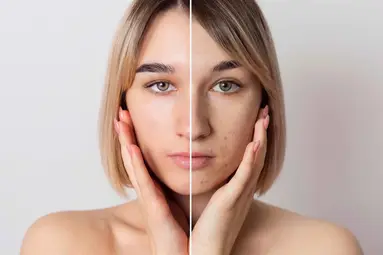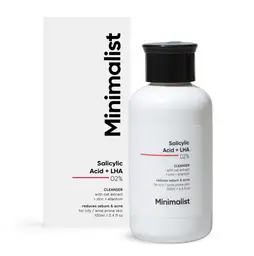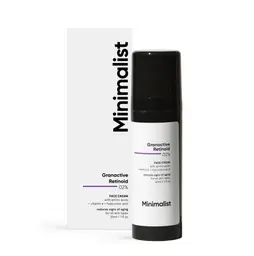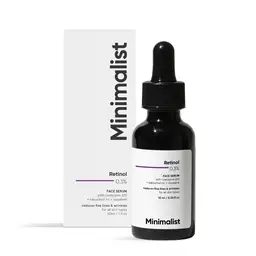Skincare Tips for Different Seasons - Adapting Your Routine to Weather Changes

Skincare Tips for Different Seasons - Adapting Your Routine to Weather Changes
Posted on 2nd Jun, 2023
Are you dealing with extreme dryness or excessive sweating on your face? If so, you can attribute it to the seasonal changes that affect your skin as our skin is constantly exposed to the external environment, and it reacts accordingly.
When it comes to skincare, it's important to adapt to the ever-changing weather conditions, just like we adjust our wardrobes to meet the challenges of different seasons. Each season brings its own set of obstacles that our skin must confront.
In this article, we will provide you with a comprehensive guide of skincare tips to help you seamlessly adapt your skincare routine to the ever-changing weather conditions.
Why you should be concerned about skincare routine changes with the weather?
Do you think your skin can handle a heavy moisturizer cream during hot and humid summers? The answer is likely no. Using such a product can leave your skin feeling greasy, and oily, and may even lead to breakouts.
The truth is, weather conditions play a significant role in the health and appearance of our skin. That's why it's essential to adapt our skincare routines to match the changing seasons.
By adjusting your skincare routine accordingly, you can effectively maintain optimal skin health and address the specific challenges posed by different weather conditions.
What is the impact of weather changes on the skin?
As the weather undergoes transformations, our skin must adapt accordingly, being influenced by various factors such as temperature fluctuations, levels of sun exposure, and other environmental stressors.
These elements collectively leave a significant impact on our skin's health and appearance.
Let’s find out how these factors specifically affect our skin throughout different seasons.
Temperatures fluctuation: Fluctuating temperatures can disrupt the skin's natural balance. Cold weather can lead to dryness, tightness, and even chapped skin, while hot weather can cause excess oil production and sweating, leading to clogged pores and breakouts.
Air Conditioning: Air conditioning can provide relief during hot summer months but can also strip the skin of moisture, leading to dryness and dullness. Spending long hours in air-conditioned environments can dehydrate the skin and weaken its protective barrier.
Sun Exposure Levels: With each season, the intensity of the sun's rays varies. Sun exposure not only increases the risk of sunburn but also contributes to premature aging, hyperpigmentation, and an increased risk of skin cancer.
Hence, adjusting your skincare routine to protect your skin from harmful UV rays is essential.
Environmental Stressors: Seasonal changes bring unique environmental stressors, such as pollution, allergens, and increased humidity. These factors can irritate the skin, trigger inflammation, and compromise its overall health and vitality.
However, there are various skin care supplements that can help you to combat most of these issues viz, premature aging, hyperpigmentation, dry and dull skin.
Seasonal Skincare Tips for Women
Now that we understand the impact of weather changes on the skin, let's explore how to adapt our skincare routines to each season:
Spring skincare:
As winter fades away and temperatures start to rise, humidity also starts rising. Due to increased heat, our body starts towards keeping cool by producing more sebum and that’s why it's important to transition your skincare routine.
But you can ensure the safety of your skin by following several steps, here's what you can do for your skin during spring:
- Hydrate your skin by using lightweight moisturizers preferably gel moisturizers that don't feel heavy.
- Protect your skin from sun exposure by using broad-spectrum sunscreen with at least SPF 30.
- Gentle exfoliation helps remove dead skin cells accumulated during winter, revealing a fresh and radiant complexion.
- Incorporate antioxidant-rich products to combat free radicals generated by increased sun exposure. In that case, consuming vitamin C supplements can help you fight the free radicals due to sun exposure
Summer skincare:
As we move towards summer, the intense temperature with sun exposure, demands extra care for your skin.
You can follow these tips to combat summer-related skin problems:
- Start using a high-SPF sunscreen and reapply it regularly, especially if you spend time outdoors.
- Opt for lightweight and breathable skincare products that won't clog your pores.
- Use oil-free moisturizers and incorporate products with ingredients like salicylic acid or tea tree oil to control excess oil.
- And most important, stay hydrated by drinking plenty of water and using hydrating mists to refresh your skin throughout the day.
Monsoon skincare:
Another dramatic season that demands extra attention is the monsoon which brings humidity and dampness and greatly affects your skin.
Here's how you can play safe with your skin during this season:
- Cleanse your face twice a day to remove excess oil and prevent breakouts.
- Use oil-free moisturizers to provide hydration without adding to the greasiness caused by humidity.
- Include products with ingredients like neem or tea tree oil to combat acne-causing bacteria.
- Keep your skin dry and avoid prolonged exposure to dampness to prevent fungal infections.
Winter skincare:
As the winter season arrives, it gets cold with dry air, leading to dryness, flakiness, and chapped skin.
However, you can help your skin with our simple skincare tips:
- Protect your skin barrier by using a rich, nourishing moisturizer to combat dryness and lock in moisture.
- Wearing scarves and using a hydrating lip balm will provide a shield to your skin from harsh winds and cold temperatures.
- As obvious, we tend to take hot showers during winters but too many hot showers and baths can strip your skin of essential oils.
Follow good skincare routine steps
Whatever the season may be you must follow a healthy lifestyle and be ready to adapt to any changes due to the environment. And I highly recommend paying more attention to how you can customize your skincare products as per the season changes.
However, I have outlined a few general guidelines that you can follow to withstand the season changes without major adjustments.
1. Create a skincare routine
- Start with determining your skin type and concerns to choose products that address your specific needs.
- Cleanse your face twice a day to remove impurities, sweat, and makeup.
- Apply serums that target your skin concerns, such as brightening, anti-aging, or acne-fighting.
- Keep your skin moisturized to lock in hydration and keep it supple.
- Lastly, don't forget the importance of sunscreen, which should be applied as the last step in your morning routine.
2. Go for All-Natural, Effective Skincare Products:
Always look for products with natural and organic ingredients that are gentle on the skin and free from harsh chemicals.
3. Eat a healthy diet:
- You must have heard, “You are what you eat” that’s true. Whatever you eat reflects on your skin and body, so nourish your skin from the inside out by consuming a balanced diet rich in fruits, vegetables, and whole grains.
- Make sure you are supplementing your diet with all the vitamins and nutrients, such as omega-3 acids, vitamins A, vitamin C, and vitamin E.
4. Manage stress levels:
- Taking stress is neither good for your health nor for your skin, so find healthy ways to manage stress, such as exercise, meditation, or hobbies.
- Get enough sleep to allow your skin to repair and regenerate overnight.
Conclusion
Adapting your skincare routine to the changing seasons is essential for maintaining healthy and radiant skin. By understanding the impact of weather changes on your skin and following these seasonal skincare tips, you can address specific challenges and keep your skin looking its best throughout the year.
Remember to create a skincare routine that suits your skin type, use effective and natural skin care products, eat a healthy diet, and manage stress levels for optimal skin health.

Health articles from our experts

Guide To Eating for Anti-Aging Benefits and Youthful Skin

Guide To Eating for Acne-Free Skin

Revitalize your Dull Skin with Amla and ABC Juice

A Comprehensive Guide On How To Reduce Pigmentation

A Comprehensive Guide To Prevent Acne

Skincare Tips for Different Seasons - Adapting Your Routine to Weather Changes

CoQ10 for Skin: Benefits & Ways to Use It

5 Best Benefits Of Ashwagandha For Skin

10 Foods Rich In Glutathione









